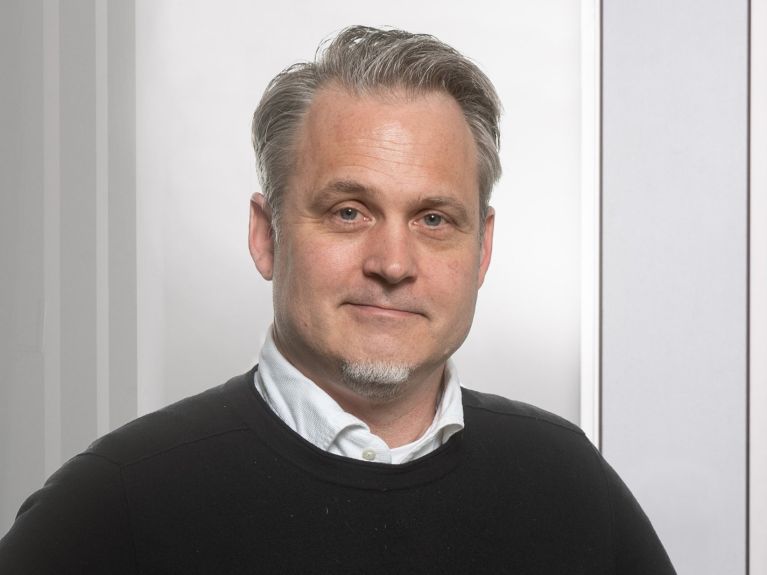AI from Germany: Europe’s smart alternative
German AI companies are relying on specialised solutions rather than large models – and this makes them internationally successful.

Artificial intelligence relies on computing power – an area where Germany has recently taken a major step forwards. In the Jülich Research Centre the “Jupiter” supercomputer went online on 5 September 2025, boosting the computing power available to AI 20-fold. “The Jupiter supercomputer has reinforced Germany’s digital sovereignty. It has put Germany at the peak of global high-performance computing, and, amongst other things, has enhanced the conditions for developing artificial intelligence,” said Ralf Wintergerst, President of Bitkom, which represents digital industries in Germany.

But computing power isn’t the only factor which affects AI development. In January 2025 the Chinese company DeepSeek released a so-called foundation model that uses significantly fewer resources than the current leading systems from the USA. Such models usually need to be trained over long periods of time using vast amounts of data.
Partnerships with local companies
This also shines a different light on what at first sight looks like sobering news. It was announced in September 2024 that Aleph Alpha, probably the best known German AI startup and one of the hopeful contenders in the race for the best large basic models, was withdrawing from this power struggle. The company intends instead to focus on smaller models for specific applications, according to Aleph Alpha CEO Jonas Andrulis. This very approach could pay off in the medium term. French company Mistral, alongside Aleph Alpha one of the hopeful AI contenders at a European level, is also following this path. And with considerable success: Mistral’s CEO Arthur Mensch believes that increasing numbers of European enterprises want to form partnerships with local companies. Aleph Alpha is already successfully cooperating with German SMEs. “It’s ultimately a question of monetising such models – in other words turning them into tangible applications. And this is a path that I believe we are following more consistently in Germany and Europe than elsewhere”, says AI Professor Kersting.
200 billion euros for AI in Europe
Since the AI Summit in Paris in February 2025, significantly more capital has been made available for AI development in Germany and Europe. This is urgently needed for the development of AI models. The EU wants in future to invest up to 200 billion euros in AI development on the continent.
Leading AI startups from Germany
This could also benefit a wide range of German AI companies that are already internationally competitive. Celonis, a spin-off from the Technical University of München, is currently valued at tens of billions. This spin-off helps companies analyse and optimise their business processes. The startup Black Forest Labs is a global leader in the AI generation of images and is building on the research results of Björn Ommer, an internationally recognised leading AI researcher from LMU Munich. And Munich defence contractor Helsing is seen as one of Europe’s fastest-growing companies in defence technology. It is valued at five billion euros. Perhaps the race has already started after all.



